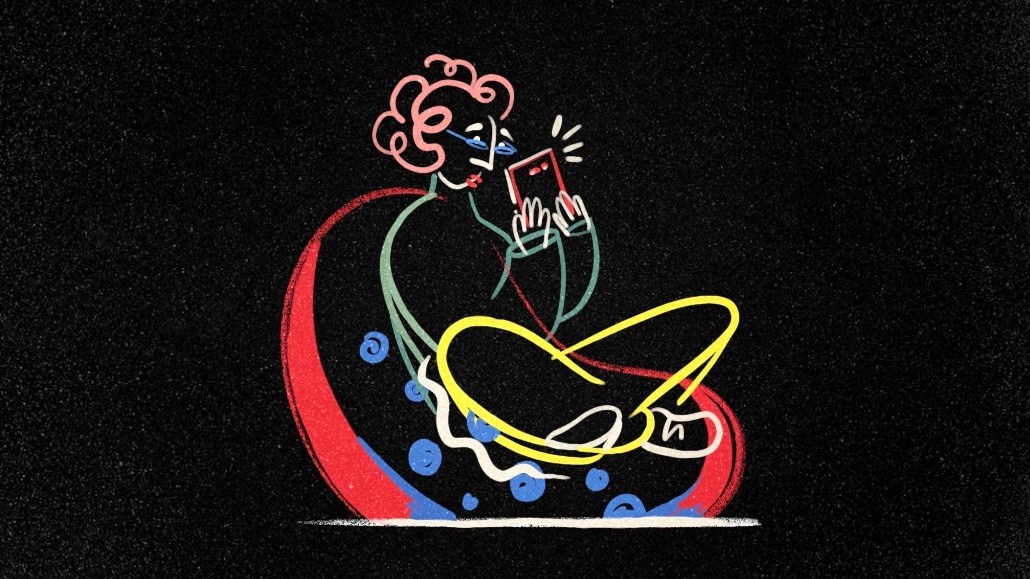Secure your place at the Digiday Media Buying Summit in Nashville, March 2-4
United Airlines is sunsetting the print component of its magazine Hemispheres

This story was first published by Digiday sibling ModernRetail
Hemispheres, United Airlines’ on-flight magazine, is ceasing its print product, according to sources familiar with the matter.
Already, the magazine’s website appears to be winding down. Its domain, hemispheresmag.com, now redirects to United’s website. As early as last month, the site was up and contained the archives of past issues, according to the Wayback Machine. Now, the archive seems to be offline and instead includes links to sample articles from the most recent issue. Indeed, much of the August issue was never published online, according to sources.
Hemispheres first launched in 1992, offering breezy lifestyle content for United’s passengers. It became known for its recurring features like “Three Perfect Days,” which showcased recommendations for international cities. But Hemispheres also featured reported travel journalism that won it hundreds of writing awards over the last three decades. In 2009, it brought on the company Ink as its publisher. Now, it seems that United has decided to make a strategic shift with its print media product.
United Airlines confirmed that changes were coming to the Hemispheres program. “A digital experience allows us to make Hemispheres even better — we can reach a wider audience, offer more personalized content and tell richer stories,” a spokesperson wrote in an emailed comment. “We’ve even hired additional United staff to help us bring this new vision to life. We’re excited about the future possibilities and look forward to sharing more details soon.”
Modern Retail reached out to Ink but did not receive a comment by press time.
This comes as airlines like United make bigger moves in the digital ad space. In June, the airline unveiled its media network Kinective Media. This program will sell targeted ad space to brands via its app and in-flight entertainment screens.
Including a print product like Hemispheres into an ad network would be difficult given the lack of targeting a physical magazine has. That being said, United did boast demographic data about Hemispheres readers to advertisers. According to its 2023 press kit, the magazine’s readers’ median household income was $154,800. Ad prices ranged from $16,360 for a 1/6-page ad to $115,608 for a one-time full-page advertising takeover.
In many ways, Hemispheres was a relic of days gone by. Major airlines, including American and Alaska, all sunset their print magazines over the last few years. This was likely due to the increasing print costs, as well as the fact that airlines are always looking for ways to save money — and magazines are extra weight. One calculation from Finnair said that print products’ weight alone consumed 473 tons of fuel in 2019.
“I was more surprised United kept it for as long as they did,” said Ryan Ewing, founder and executive editor of the airline-focused digital publication AirlineGeeks. Still, he added that “Hemispheres is a very distinct brand — it has been around for quite a long time.”
In Ewing’s eyes, airlines likely see few ways to grow revenue on non-digital media products. “Aside from the ad part of it, there are not a ton of monetization opportunities,” he said.
Some major international airlines, like Lufthansa, still have magazines; in addition to advertisements, however, they also sell duty-free products. But a big focus for the major U.S. airlines in recent years has been leaning into their points programs and branded credit cards as commerce revenue engines. Delta Airlines, for example, boasted last year that it was the fifth-largest e-commerce company.
Similar to other brands that tested out physical media, it seems United finally deemed the cost of print too high. “All of that complexity finally hit a head,” said Ewing.
More in Media

From feeds to streets: How mega influencer Haley Baylee is diversifying beyond platform algorithms
Kalil is partnering with LinkNYC to take her social media content into the real world and the streets of NYC.

‘A brand trip’: How the creator economy showed up at this year’s Super Bowl
Super Bowl 2026 had more on-the-ground brand activations and creator participation than ever, showcasing how it’s become a massive IRL moment for the creator economy.

Media Briefing: Turning scraped content into paid assets — Amazon and Microsoft build AI marketplaces
Amazon plans an AI content marketplace to join Microsoft’s efforts and pay publishers — but it relies on AI com stop scraping for free.








